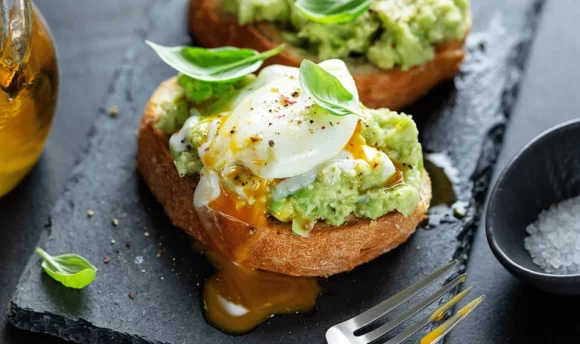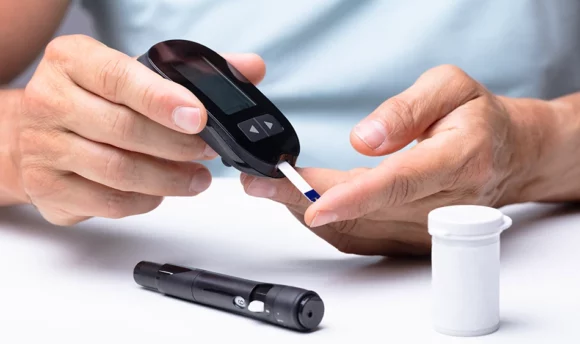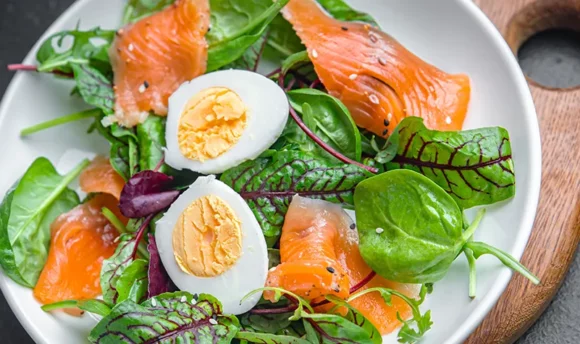Sugar-Free and Keto-Friendly: The Top 11 Keto Sweeteners (and 7 to Avoid)
There is a myriad of keto sweeteners available, some good and some bad. Which ones are ideal for your dietary transition? We provide in-depth facts on the 11 best and 7 worst options.
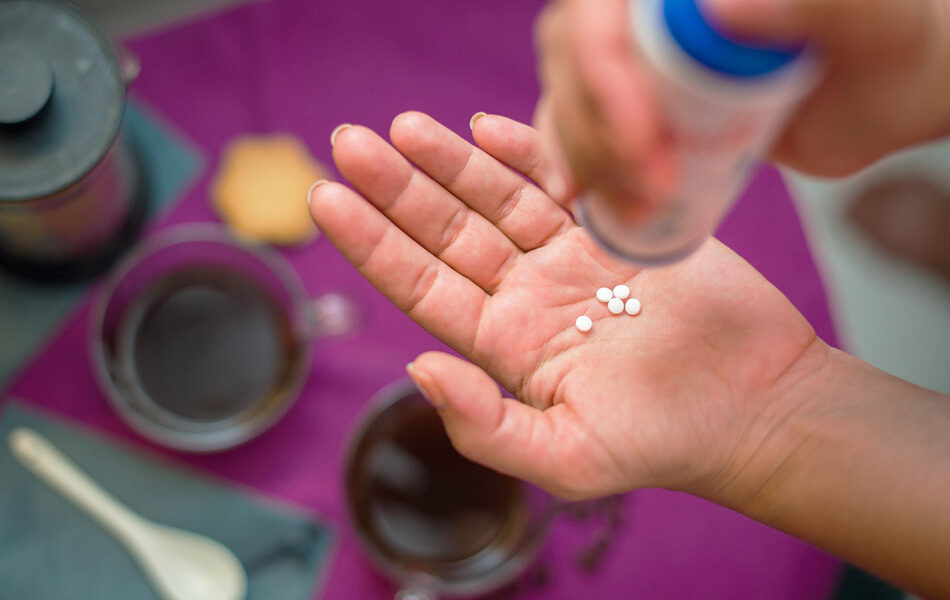
From time to time, a sugar substitute can be a welcome treat on the keto diet, making your food taste more appetizing. There are several keto-friendly sweeteners available, but some are better for keto than others.
To comply with the ketogenic diet, you should choose options that don’t raise blood sugar. And since some keto-friendly sweeteners are better than others, you must consider your options carefully if you are to remain in ketosis.
Read our article discussing the 11 best and 7 worst keto sweeteners for more facts.
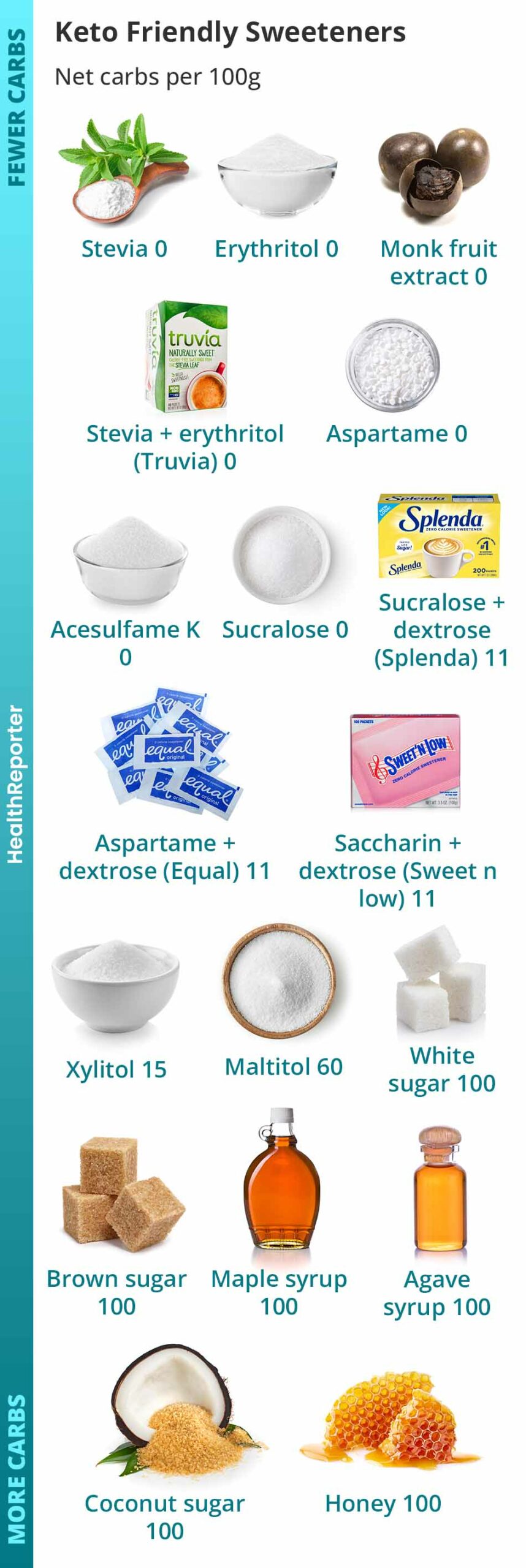
11 Keto-Friendly Sweeteners to Satisfy Your Sweet Tooth
It can be difficult to select a sweetener for the keto diet, but plenty of options exist. So, what are the best options to include in your diet? Consider the 11 keto-friendly sweeteners listed below.
#1 Stevia
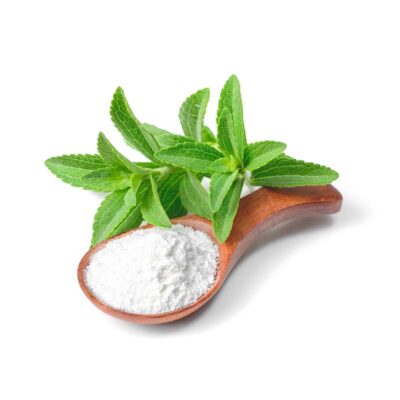
Stevia is a nonnutritive, plant-based sweetener. It is one of the best keto sweeteners because it contains zero net carbs and close to zero calories.
You can use Stevia for sweetening desserts or hot beverages and select powder, liquid, or small pellet options to add extra flavor to your food and drinks.
Stevia, to some extent, can even decrease high blood sugar levels, so it is one of the top low-carb sweeteners.
#2 Erythritol
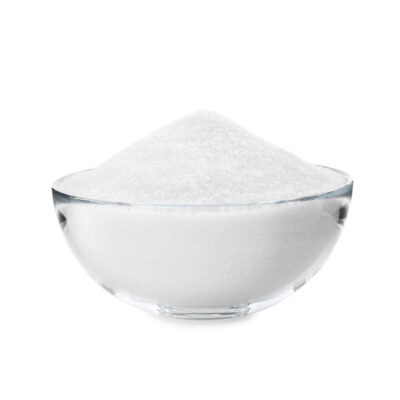
The sugar alcohol erythritol contains compounds that simulate a sweet taste in the mouth, similar to sugar. However, it contains zero carbs and does not raise blood sugar.
Its naturally occurring sugar alcohols are unique, as they do not cause digestive problems (like many other sugar alcohol sweeteners do).
It is possible to use erythritol for baking keto-friendly desserts. However, note that the texture differs from sugar and does not always readily dissolve.
#3 Monk fruit extract
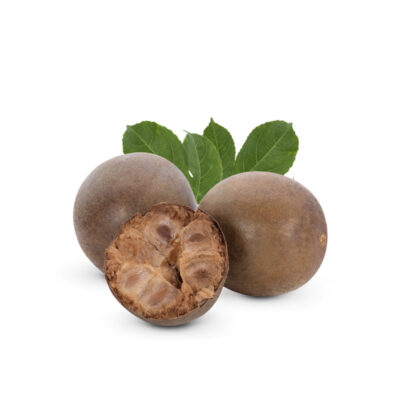
Similarly to inulin, chicory root fiber, monk fruit is a natural, yet not so well-known keto sweetener. It’s an extract derived from monk fruit through an extraction process, and it contains mogroside antioxidants that can affect its sweetness depending on the concentration of these compounds.
It is a remarkable option for ketogenic diets because it contains zero calories and no carbs. However, always read the label to confirm this sweetener does not contain molasses or sugar.
This sweetener will not raise blood sugar or insulin levels.
#4 Stevia + erythritol (Truvia)
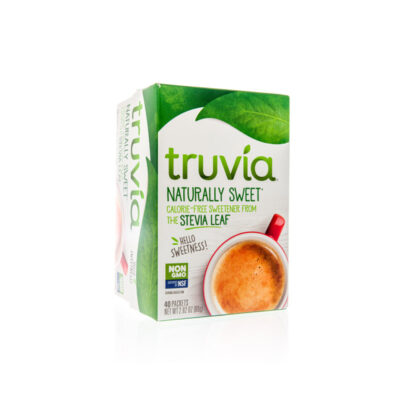
This keto sweetener features plant-based sweetener, Stevia, and erythritol, a sugar alcohol. Although the erythritol component provides carbs, it is a negligible amount of energy (0.2kcal/g). So Stevia and erythritol are ideal for ketosis.
Truvia sweeteners also do not contain any calories.
#5 Aspartame
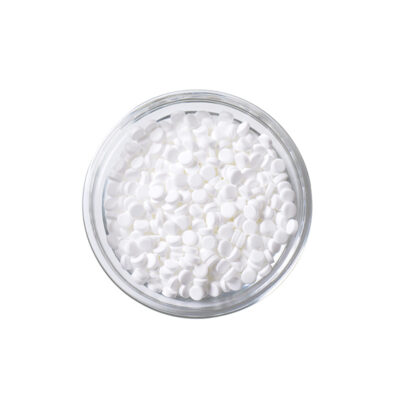
If you want to add more sweetness to your food and drinks while on the ketogenic diet, aspartame is one of the artificial sweeteners you may be considering. You can find aspartame in diet sodas and gum that has no sugar.
Product manufacturers make aspartame by fusing two naturally occurring amino acids, aspartic acid, and phenylalanine.
This sugar substitute contains just 0.1 grams of net carbs per tablet. You can safely consume aspartame, give your food extra flavor, and avoid exiting ketosis in your low-carb diet with sugar substitutes like these.
It is important to note that aspartame is considered a lazy keto sweetener due to its artificial ingredients.
#6 Acesulfame
Acesulfame is a no-calorie keto sweetener approximately 200 times sweeter than sucrose table sugar. Since it contains zero net carbs for each half-gram serving, it is a top option for a low-carb diet. This sweetener does not raise blood sugar or insulin.
#7 Sucralose
You may consider adding sucralose sweetener to your ketogenic diet, which is a good option. Sucralose has no effect on glucose or insulin concentrations when passing through your system. For this reason, it provides the body with no carbs.
If you choose to consume sucralose as part of a keto diet, remember to consume it in moderation; it can cause gut health problems and affect the bacteria in your system. Make sure you do not use it when baking, as it can produce cancer-causing components when it breaks down.
#8 Sucralose + dextrose (Splenda)
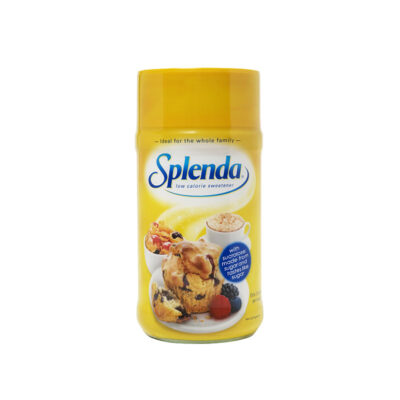
The combination of sucralose and dextrose is an artificial sweetener and sugar substitute that is popular around the globe. It is known by its brand name, Splenda. With a different chemical structure than sugar, it is keto-friendly and contains less than a gram of carbs per tablet.
Sucralose and dextrose are 600 times sweeter than regular sugar. To increase their palatability, you can add this sweetener to coffee or tea.
This sweetener was approved in 1998 by the FDA, and many manufacturers use it in soft drinks to add a sweet flavor with none of the extra carbohydrates that come with sugar.
Splenda is considered a lazy keto sweetener because it is artificially made and should only be used in limited amounts.
#9 Aspartame + dextrose (Equal)
Since a single serving of aspartame and dextrose sweetener contains zero calories and less than 1 gram of carbohydrates per tablet, this option is ideal for ketosis.
It is possible to sweeten your drinks and desserts with an aspartame and dextrose sweetener without increasing your blood glucose levels, helping with weight loss, which is another reason you may choose this option when on a ketogenic diet.
#10 Saccharin + dextrose (Sweet’n Low)
Since saccharin and dextrose sweetener contains 2.93 grams of carbohydrates for each teaspoon, you should use this option with caution when on a ketogenic diet.
On the other hand, the liquid alternative to saccharin and dextrose sweeteners does not contain any carbohydrates, so it is less likely to take you out of ketosis.
Keep in mind that the dextrose in this sweetener may rank higher than white sugar on the glycemic index, so blood glucose spikes may be possible when you consume it.
#11 Xylitol
Xylitol is one of the other sugar alcohols commonly used as an artificial sweetener. It is a plant-based sweetener found in sugar-free gum and candy.
If you’re wondering if xylitol is ideal for ketosis, the answer is that it’s best to use it in moderation. In small amounts, xylitol does not cause an insulin spike. However, in large amounts, you run the risk of triggering an insulin response.
Say No to These 7 Sweeteners When Following the Keto Diet
So which sweeteners should you exclude from your keto diet to avoid consuming excessive carbohydrates and calories? Here are 7 sweeteners to avoid.
#1 Maltitol
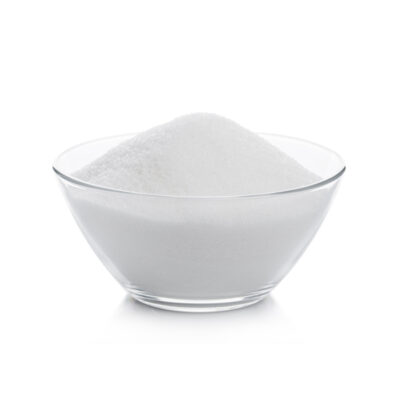
Maltitol is a type of sugar alcohol. It is not as sweet as sugar, and although you can use it as a sweetener, it can affect ketosis.
Since maltitol can cause a spike in blood sugar, it is best to avoid this sweetener if you are on a keto diet and want to consume less than 50 grams of carbohydrates per day.
Maltitol can be found in packaged foods to add sweetness and flavor. For this reason, it is incredibly important that you check the ingredient labels of all packaged foods you consume on the keto diet.
#2 White sugar
White sugar is a no-no when you are on a ketogenic diet. It has many negative effects on the body, such as weight gain and insulin spikes, and can quickly put you out of ketosis due to its high carbohydrate content. It contains 3.98 grams of carbohydrates per teaspoon.
The two main white sugar components are 50% glucose and 50% fructose, making this option a simple carbohydrate.
Since you cannot consume more than 50 grams of carbohydrates on a keto diet, it pays to stick to sugar substitutes instead of white or table sugar.
#3 Brown sugar
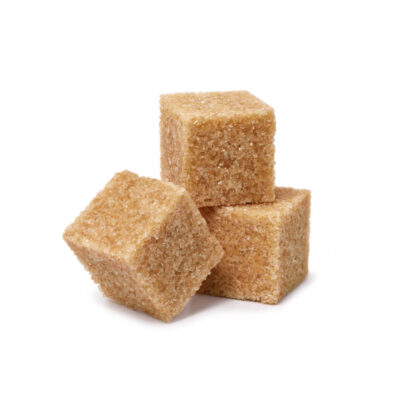
Make sure to avoid brown sugar when following the keto diet. A single teaspoon of brown sugar contains 3 grams of carbohydrates. Although brown sugar is considered a healthier alternative to white sugar due to its higher nutrient content, it is not suitable for the ketogenic diet.
Brown sugar also has zero grams of fat. Fat is where most of your calories should come from on a ketogenic diet, so low-fat, high-carbohydrate sweeteners like brown sugar are completely unsuitable.
#4 Maple syrup
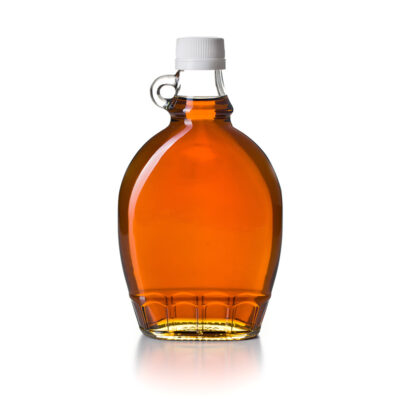
Maple syrup is a sugary syrup made from the sap of maple trees. You may be surprised to learn that maple syrup contains more antioxidant phenolic compounds and minerals than sugar. It is, therefore, a slightly healthier option than white or brown sugar and is often used as a natural alternative.
However, maple syrup is not a keto-friendly option because it contains pure sugar and too many carbohydrates, which can contribute to the end of ketosis in the body.
It has far too many calories for a low-carb diet – just one tablespoon contains 14.29 grams of carbs. When you consider that a serving size of maple syrup is a quarter of a cup, you can see how the calories can far exceed the recommended amounts for the keto diet.
#5 Agave syrup
Agave syrup is derived from the agave plant’s leaves. The number of net carbs for the syrup is 5.27 grams in a single tablespoon. It is often used as a natural sweetener and is considered healthier than table sugar. However, it is not a keto-friendly option.
To stay in ketosis, you should avoid consuming agave syrup, which contains 56% fructose. Its high fructose content and net carbohydrates make it an inappropriate sugar alternative.
#6 Coconut sugar
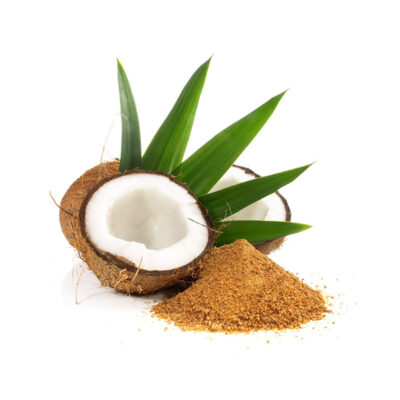
You may think that coconut sugar is natural and suitable for the ketogenic diet. However, you need to avoid this option for several reasons.
Coconut sugar may be plant-based and more nutritious than table sugar, but it raises blood sugar levels. It is also high in calories and contains carbohydrates (one teaspoon contains 8 grams of carbs per teaspoon). These 3 factors will take you out of ketosis.
#7 Honey
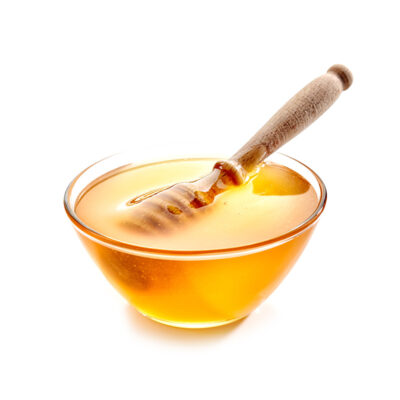
With its high sugar, fructose, and carbohydrate content, honey can break your ketosis and affect your blood sugar. It contains between 21–43% of fructose and 16.5 grams of net carbs in one tablespoon.
It is best to completely avoid honey and select an alternative keto-friendly sweetener that contains fewer carbs and calories.
FAQs
Since frequent use of xylitol can kick you out of ketosis and cause a few side effects, such as stomach cramping, erythritol is a better option for keto. Even though xylitol and erythritol are both sugar alcohols, the body does not metabolize erythritol.
The keto sweetener that tastes most like sugar is erythritol. It has a sweet and palatable taste similar to sugar. You may find the difference between erythritol and sugar so slight that you cannot distinguish between them.
Since Coke Zero contains artificial sweeteners and no sugar, you can have this beverage on keto and remain in ketosis. Some of the artificial sweeteners Coke Zero contains include aspartame and acesulfame.
A Word From Our Nutritionist
The critical factor to keep in mind when selecting keto-friendly sweeteners is to consider the number of carbohydrates and calories they contain, so you remain in ketosis. Always check whether the sweetener you choose has as close to zero net carbs as possible.
It is also important to make sure that your sweetener does not affect your blood sugar levels. If your blood sugar is constantly rising, you will not stay in ketosis, and it will be difficult to lose weight.
Finally, check food labels to make sure your products and sugar substitutes do not contain other carbohydrates, such as sorbitol or maltodextrin, which can have unpleasant side effects.
Conclusion
When choosing keto-friendly sweeteners, low-carb sweeteners are always the best option. Try to check food labels before consuming sweeteners and avoid natural sweeteners that contain sugar to stay in ketosis and achieve optimal weight loss.

















































 Select your language:
Select your language: 





